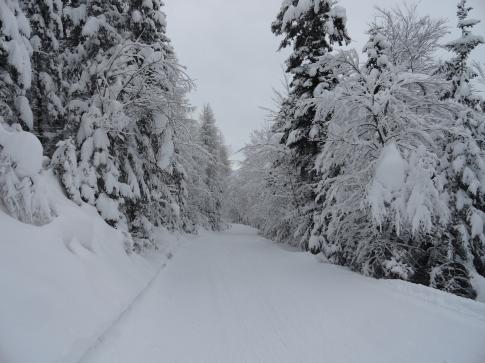The Neckar

The world seems to me yet beautiful, and my eyes Search out with desire the charms of the earth...
Friedrich Hölderlin *
Winter
God shaves some of the highest meadows green
To contrast with his sky-blue, cloud-shot eyes
When He gets tired of over-seeing
Cow-paths our boots metaphorize.
Three-hundred sixty-five, twenty-four seven,
Spotlight-tanned, or billion-billion-candle-lit,
We think each shitty step is legible from heaven—
That’s how we handle it.
The Shaft
You play, and tease, and laugh, my friends—that’s as it must be!
But my soul feels—alas!—its desperate needs.
Better People
Better people like to pretend that better people
Have insides and outsides, as in that handy game—
With the two-fisted church, the finger steeple—
But inside and outside are the same the same the same the same.
Hypocritical Poets
Cold hypocrites, speak not of the Gods!
You think! You do not believe in Helios,
Nor the Thunderer, nor Poseidon!
The earth is dead! No one will thank her now!
Ach, my Gods! You still adorn their songs,
But all the soul’s gone out of your names,
And when they need a really big word
They use “Mother Nature.”
The Neckar
My heart awakened to life in your valleys,
Your waves played around me.
And all of the fair hills that know you,
Wayfarer, are known to me as well.
On those peaks the winds from the sky
Relieved me from pains of bondage,
And silver-blue waves shone forth from the valley,
Like the joy of life pouring out from a chalice.
Mountain springs hurried down to you,
My heart with them, and you took us along
To the quietly splendid Rhine, down
To its cities and pleasant islands.
The world seems to me yet beautiful, and my eyes
Search out with desire the charms of the earth,
To golden Paktolos, to Smyrna's shores,
To Ilion's woods. How I'd like to
Go ashore at Sunium, and ask for the silent road
To your pillars, Olympia! Before age
And storm winds bury you as well
In the ruins of Athens' temples,
Along with the statues of its gods. For you
Have long stood alone, pride of a world
That no longer exists. And the beautiful
Islands of Ionia, where sea air
Cools the hot shores and rushes through the woods
Of laurel, when the sun warms the grapevines,
And, oh, where golden autumn changes
The sighs of the poor people into songs,
When the pomegranate ripens, when the orange trees
Nod in a green night, and the gum trees drip
Resin, and drums and cymbals resound
To labyrinthine dances.
Perhaps someday my guardian deity will bring me
To these islands, but even then my thoughts
Would remain loyal to the Neckar
With its lovely meadows and pastoral shores.
* Poet, translator, and novelist Friedrich Hölderlin was born on March 20, 1770 in Lauffen am Neckar, Württemberg, and died on June 7, 1843 in Tübingen, Württemberg. Well-educated and even from his youth connected to or acquainted with fellow students and teachers such as Schelling, Hegel, Schiller, Goethe, Fichte, and Novalis, Hölderlin was nonetheless subject to a passionate and hypochondriacal temperament, which was aggravated in his case by a disastrous love affair with the wife of his employer. Hölderlin’s mental health had collapsed by the turn of the century, and though attempts were made to treat him and to find him a sinecure, he was at last invited to stay in the home of a poetry-reading carpenter, Ernest Zimmer, who, along with his family, took care of Hölderlin for the next 36 years. Though he continued to write some of the most important poems in German lyric literature, the friends of his youth for the most part abandoned Hölderlin during his long, quiet Turmzeit.




 del.icio.us
del.icio.us Digg
Digg

Post your comment